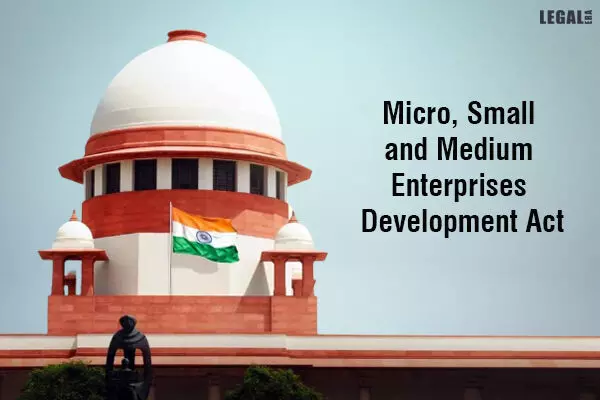- Home
- News
- Articles+
- Aerospace
- AI
- Agriculture
- Alternate Dispute Resolution
- Arbitration & Mediation
- Banking and Finance
- Bankruptcy
- Book Review
- Bribery & Corruption
- Commercial Litigation
- Competition Law
- Conference Reports
- Consumer Products
- Contract
- Corporate Governance
- Corporate Law
- Covid-19
- Cryptocurrency
- Cybersecurity
- Data Protection
- Defence
- Digital Economy
- E-commerce
- Employment Law
- Energy and Natural Resources
- Entertainment and Sports Law
- Environmental Law
- ESG
- FDI
- Food and Beverage
- Gaming
- Health Care
- IBC Diaries
- In Focus
- Inclusion & Diversity
- Insurance Law
- Intellectual Property
- International Law
- IP & Tech Era
- Know the Law
- Labour Laws
- Law & Policy and Regulation
- Litigation
- Litigation Funding
- Manufacturing
- Mergers & Acquisitions
- NFTs
- Privacy
- Private Equity
- Project Finance
- Real Estate
- Risk and Compliance
- Student Corner
- Take On Board
- Tax
- Technology Media and Telecom
- Tributes
- Viewpoint
- Zoom In
- Law Firms
- In-House
- Rankings
- E-Magazine
- Legal Era TV
- Events
- News
- Articles
- Aerospace
- AI
- Agriculture
- Alternate Dispute Resolution
- Arbitration & Mediation
- Banking and Finance
- Bankruptcy
- Book Review
- Bribery & Corruption
- Commercial Litigation
- Competition Law
- Conference Reports
- Consumer Products
- Contract
- Corporate Governance
- Corporate Law
- Covid-19
- Cryptocurrency
- Cybersecurity
- Data Protection
- Defence
- Digital Economy
- E-commerce
- Employment Law
- Energy and Natural Resources
- Entertainment and Sports Law
- Environmental Law
- ESG
- FDI
- Food and Beverage
- Gaming
- Health Care
- IBC Diaries
- In Focus
- Inclusion & Diversity
- Insurance Law
- Intellectual Property
- International Law
- IP & Tech Era
- Know the Law
- Labour Laws
- Law & Policy and Regulation
- Litigation
- Litigation Funding
- Manufacturing
- Mergers & Acquisitions
- NFTs
- Privacy
- Private Equity
- Project Finance
- Real Estate
- Risk and Compliance
- Student Corner
- Take On Board
- Tax
- Technology Media and Telecom
- Tributes
- Viewpoint
- Zoom In
- Law Firms
- In-House
- Rankings
- E-Magazine
- Legal Era TV
- Events
MSMED : Reference To Facilitation Council Maintainable In Spite Of An Independent Arbitration Agreement between two entities: Supreme Court

MSMED : Reference To Facilitation Council Maintainable In Spite Of An Independent Arbitration Agreement between two entities: Supreme Court
The buyers and sellers had raised differing contentions for resolving the disputes
The Supreme Court has observed that reference made to the Micro and Small Enterprises Facilitation Council is maintainable despite an independent arbitration agreement existing between the parties to whom the Micro, Small and Medium Enterprises Development (MSMED) Act, 2006 is applicable.
It maintained that the Council, which initiated the conciliation proceedings under the Act, would be entitled to act as an arbitrator despite restrictions in the Arbitration and Conciliation Act, 1996.
The bench comprising Chief Justice UU Lalit and Justice Bela M. Trivedi disposed of a batch of appeals that raised the following issues:
(i) Whether the provisions of the MSMED Act would have an effect overriding the provisions of the Arbitration Act.
(ii) Whether any party to a dispute on any amount due under the MSMED Act would be precluded from making a reference to the Facilitation Council if an independent arbitration agreement existed between the parties as contemplated in the Arbitration Act.
(iii) Whether the Facilitation Council could take up the dispute for arbitration and act as an arbitrator when it conducted the conciliation proceedings under the MSMED Act in view of the bar contained in the Arbitration Act.
The buyers raised the contention before the apex court that reference to the Facilitation Council would be available only when there was no clause in the contract providing for the resolution of the dispute by way of arbitration.
On the other hand, the suppliers contended that the MSMED Act provided the party a statutory right to approach the Council. That right could not be obliterated on account of an arbitration agreement between the parties.
Referring to the provisions of the Arbitration Act and MSMED Act, the court ruled:
(i) The MSMED Act would override the provisions of the Arbitration Act.
(ii) No party to a dispute to any amount due under the MSMED Act would be precluded from making a reference to the Facilitation Council, though an independent arbitration agreement exists between the parties.
(iii) The Facilitation Council, which initiated the conciliation proceedings under the MSMED Act, would be entitled to act as an arbitrator despite the bar contained in the Arbitration Act.
(iv) The proceedings before the Facilitation Council/Institute/Centre acting as an arbitrator/arbitration tribunal under the MSMED Act would be governed by the Arbitration Act.
(v) The Facilitation Council/Institute/Centre acting as an arbitral tribunal by virtue of the MSMED Act would be competent to rule on its own jurisdiction as also the other issues in view of the Arbitration Act.
(vi) A party that was not the 'supplier' as per the definition contained in the MSMED Act on the date of entering the contract, cannot seek any benefit as the 'supplier' under the MSMED Act. If any registration is obtained subsequently, it would have an effect prospectively and would apply to the supply of the goods and rendering services after the registration.


